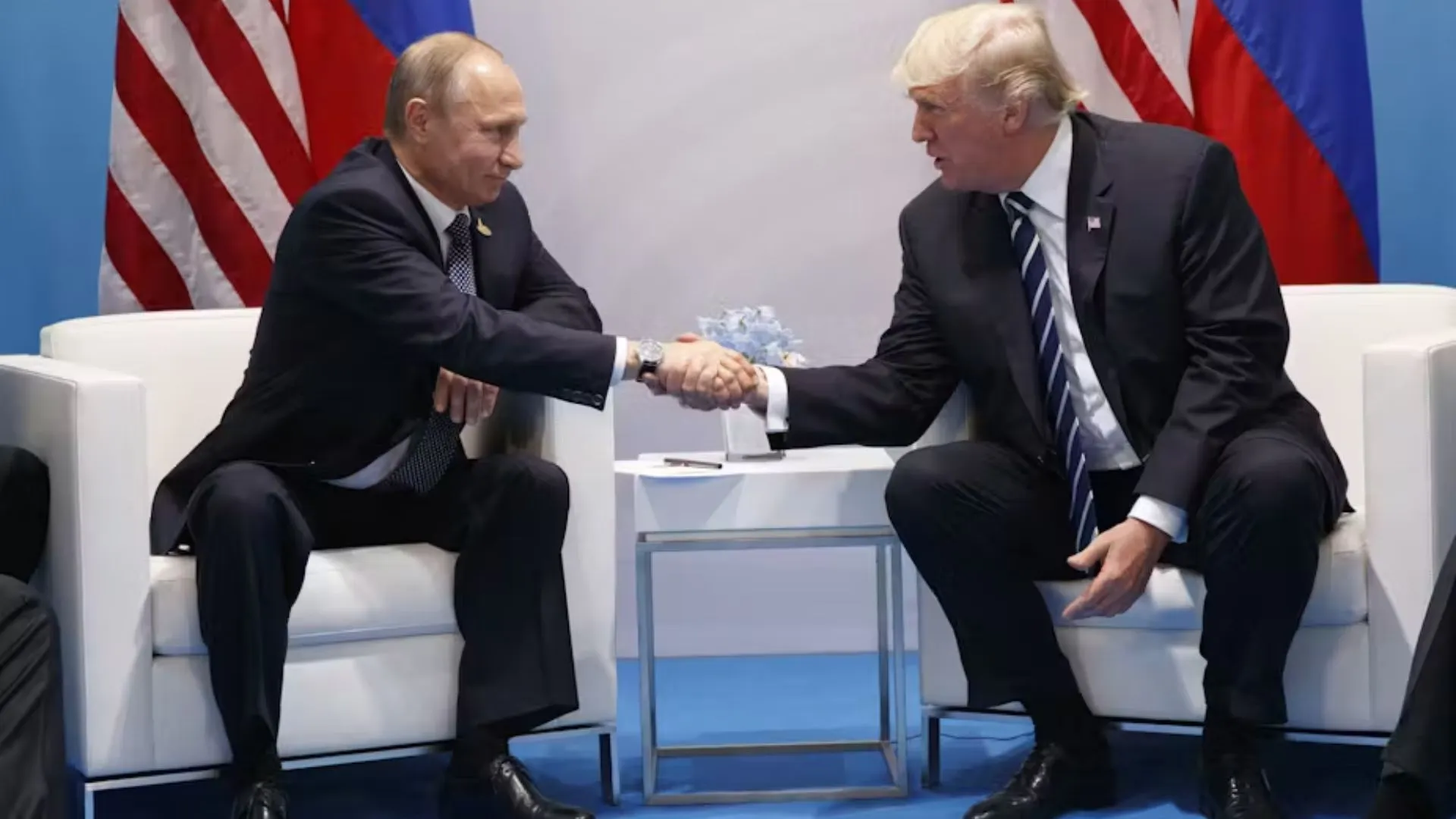The Arctic is heating up, both in climate and geopolitics. As US President Donald Trump pushes forward with his ambitions to annex Greenland, Russia is making its own moves in the region.
During a visit to Murmansk—the largest city north of the Arctic Circle—President Vladimir Putin reaffirmed Russia’s commitment to strengthening its leadership in the Arctic.
However, in a surprising twist, Putin did not stake any territorial claims or advocate for expansionism. Instead, he took a neutral stance on Trump’s Greenland plans, signaling that Moscow would not interfere in the matter.
Putin’s Surprising Stance on Greenland
Acknowledging the growing geopolitical competition in the Arctic, Putin referenced Trump’s Greenland ambitions as a prime example.
“Geopolitical competition in the Arctic region is intensifying,” Putin said, underscoring how nations are increasingly vying for influence in the resource-rich region.
Instead of condemning Washington’s Arctic strategy, Putin appeared to take a hands-off approach. “America’s plans in relation to Greenland are serious. These plans have deep historical roots. And it is clear that the US will continue to systematically pursue its geo-strategic, military, political, and economic interests in the Arctic region,” he remarked, acknowledging America’s long-term vision for the area.
A Silent Go-Ahead to Washington?
Putin’s decision to sidestep the Greenland issue has raised eyebrows globally. His neutral stance, particularly at the Arctic Forum in Murmansk, was interpreted by some as an implicit go-ahead for the US to proceed with its plans.
“As for Greenland, this is a matter for two specific countries (US and Denmark). It has nothing to do with us,” Putin stated.
This comes at a time when US-Russia relations appear to be shifting. Trump’s administration has altered Washington’s approach to Moscow, moving away from past hostilities. Meanwhile, European leaders, particularly in France, are scrambling to recalibrate their geopolitical strategies in response to these developments.
The Kremlin’s silence on Greenland may also have broader implications, particularly concerning Ukraine, where Russia continues to maintain control over vast territories. With the West focused on Greenland and Arctic affairs, Moscow’s grip on Ukraine may face less immediate resistance.
Russia and the US: From Rivals to Strategic Partners?
A significant shift is occurring in Moscow-Washington relations. Once defined by confrontation, the two nations are now exhibiting a more cooperative tone. This change is evident in their mutual criticisms of Ukrainian President Volodymyr Zelensky, with Russian officials echoing Trump and Vice President JD Vance’s harsh assessments of his leadership.
Putin’s Arctic visit further reinforces the idea that Russia is positioning itself as a cooperative partner in the region rather than an adversary. Kirill Dmitriev, Putin’s special envoy for foreign investment and economic cooperation, emphasized the potential for collaboration.
“We are open to considering different investment opportunities that we can do jointly with the US, in certain sectors approved by the Russian government,” Dmitriev said, pointing to Arctic logistics and resource extraction as potential areas of cooperation.
He also hinted that deeper economic ties may be contingent on an end to the war in Ukraine. “We (Russia and the US) now have a very good dialogue, and I think it is very important that the US is trying to understand Russia’s position,” he told the BBC.
As the geopolitical chessboard continues to shift, Putin’s nonchalant stance on Greenland and warming ties with Washington suggest that Moscow is playing a long game—one that could reshape alliances and power dynamics in the Arctic and beyond.
ALSO READ: Trump Backs Budget Fix To Restore $1.1 Billion To Washington, DC, Amid Funding Crisis




















